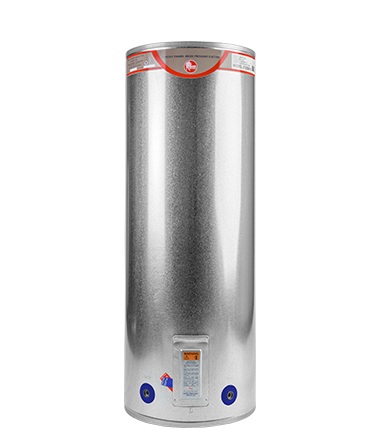How to Choose the Right Gas Hot Water Heater for Your Needs
Selecting the right gas hot water heater is a crucial decision for any household. The correct choice ensures you have a reliable and efficient supply of hot water, saving you both time and money in the long run. This guide will walk you through the key factors to consider when choosing a gas hot water heater, helping you make an informed decision.
Understanding Your Hot Water Needs
The first step in selecting a gas hot water heater is understanding your household's hot water needs. Consider the following:
Household Size: The number of people in your household significantly impacts your hot water consumption. A larger family will require a larger capacity heater to meet the demand.
Usage Patterns: Take note of when and how your household uses hot water. For instance, if everyone showers in the morning, a system with a quick recovery rate will be beneficial.
Hot Water Appliances: Consider the number of hot water appliances in your home, such as dishwashers, washing machines, and multiple bathrooms. More appliances mean a higher demand for hot water.
Types of Gas Hot Water Heaters
Gas hot water heaters come in various types, each with its own advantages and disadvantages:
Storage Tank Heaters: These are the most common type, featuring a large tank where water is heated and stored until needed. They are typically less expensive upfront but can be less energy-efficient due to heat loss from the tank.
Tankless (On-Demand) Heaters: These heaters provide hot water only when needed, offering greater energy efficiency and virtually unlimited hot water. However, they are more expensive to purchase and install.
Condensing Water Heaters: These units capture and reuse the heat that would otherwise be lost in a traditional system, making them highly efficient. They are more expensive but can save money in the long term due to lower energy bills.
Combination Water and Space Heaters: These units provide both hot water and home heating, which can be a space-saving and efficient option for some households.
Key Features to Consider
When choosing a gas hot water heater, consider the following features to ensure it meets your needs:
Capacity: Ensure the heater’s capacity matches your household's hot water demand. Storage tank heaters range from 20 to 80 gallons, while tankless systems are rated by the number of gallons per minute (GPM) they can deliver.
Energy Efficiency: Look for heaters with high Energy Factor (EF) ratings, as these are more efficient and will save you money on energy bills. ENERGY STAR-certified models are a good indicator of efficiency.
Recovery Rate: This is the amount of hot water the heater can produce in an hour. A higher recovery rate is essential for households with high hot water usage.
Venting Requirements: Gas hot water heaters require proper venting to expel combustion gases. Ensure your home can accommodate the venting requirements of the heater you choose.
Warranty: A longer warranty can provide peace of mind and protect your investment. Look for heaters with at least a 6-year warranty.
Installation and Maintenance
Proper installation is crucial for the safe and efficient operation of your gas hot water heater. It's advisable to hire a licensed professional to install your heater, as they will ensure it meets all local codes and regulations.
Regular maintenance is also essential to extend the life of your heater and maintain its efficiency. This includes:
Annual Inspection: Have a professional inspect your heater annually to check for leaks, corrosion, and proper operation.
Flushing the Tank: For storage tank heaters, flushing the tank annually helps remove sediment build-up, which can reduce efficiency and lifespan.
Cleaning the Vent: Ensure the venting system is clear of obstructions to prevent dangerous carbon monoxide build-up.
Checking the Anode Rod: This rod helps prevent tank corrosion. Inspect and replace it if necessary every few years.
Cost Considerations
The initial cost of a gas hot water heater can vary widely based on the type and features. While storage tank heaters are generally less expensive upfront, they may cost more in energy bills over time compared to tankless or condensing models.
Consider the long-term savings when evaluating the cost. An energy-efficient model may have a higher upfront cost but can save you significant money on energy bills over its lifespan. Additionally, some regions offer rebates and incentives for installing energy-efficient appliances, which can offset the initial investment.
Conclusion
Choosing the right gas hot water heater involves understanding your household's hot water needs, considering the different types of heaters available, and evaluating key features such as capacity, energy efficiency, and recovery rate. Proper installation and regular maintenance are essential for ensuring your heater operates safely and efficiently. By carefully considering these factors, you can select a gas hot water heater that provides reliable hot water, saves energy, and fits your budget.
Contact Us:
Hot Water Solutions
3d Tait Place, Auckland
Email: info@hotwatersolutions.nz
Call Us: 0800 HWSOLU (497658)
Google map: https://maps.app.goo.gl/weuxr8LohUEv2ooj6
Social Links:
https://www.facebook.com/Hot-Water-Solutions-100885308035357/




Comments
Post a Comment